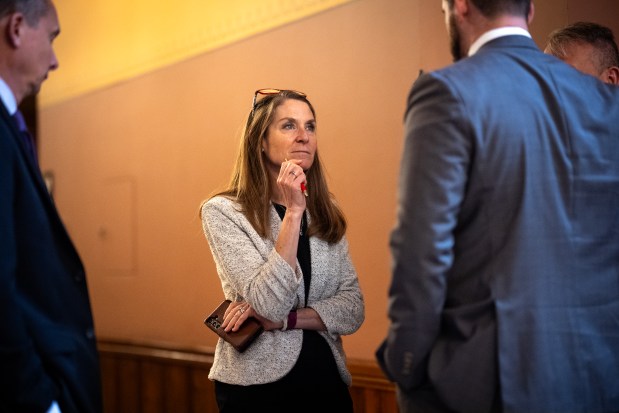Evanston received a $7 million U.S. Department of Housing and Urban Development grant in the final week of the Biden administration, and city officials are monitoring the actions of the Trump administration, which has taken steps in its first two weeks to freeze federal funding, including grants and loans.
Evanston was the only Illinois city to receive a share of HUD’s $100 million in Pathways to Removing Obstacles to Housing grants, announced Jan. 14 and awarded to municipalities taking steps to increase affordable housing. Other recipients include San Francisco, Austin, Detroit, Oakland, St. Louis, Sacramento and Louisville.
“The City is in the process of carefully reviewing the federal funding it receives,” said Cynthia Vargas, Evanston’s Communications and Engagement manager. “We are actively monitoring and evaluating the relevant details and will share further updates as more information becomes available.
The Trump administration issued a freeze on federal spending, but a judge ordered a pause before that could take effect, according to previous reporting. It remains unclear whether the Republican administration will continue its efforts to block the distribution of already-allotted grant funding.
The grant was awarded for what Evanston has done so far, and hopes to do, on the housing front.
“The communities that were awarded PRO Housing funding demonstrated a commitment to overcoming local barriers. These funds will accelerate critical investments in housing, housing enabling infrastructure, and regional strategies to meet community needs,” said Marion McFadden, principal deputy assistant secretary for community planning and development.
Per HUD’s website, the grants were given to communities who are taking steps in removing barriers to affordable housing, such as updating its zoning and land use policies, preserving its housing stock and increasing neighborhood amenities.
According to a news release from Evanston, PRO Housing grant funds can be used between February 2025 and September 2030 to further housing goals.
Previously, Evanston also received $985,000 in federal grants from the U.S. Department of Transportation in September 2024 to partner with real estate and planning experts to begin exploring potential redevelopment in Evanston for city-owned assets near public transit, according to Vargas.
HUD documents show that Evanston was chosen because its intention to update its zoning code and its comprehensive plan, Envision Evanston, which have goals to increase housing density and affordable housing.
Per the city’s application to HUD, the anticipated changes to its zoning code are similar to zoning changes made by the city of Minneapolis in 2009: “With those changes, between 2017 and 2022, the City of Minneapolis had significantly better outcomes than the rest of the state of Minnesota including: greater increase in housing production, essentially flat rents, and a decrease in homelessness.”
Those changes in Minneapolis included eliminating parking requirements, allowing the construction of accessory dwelling units and and lowering the minimum lot size requirement in residential zones to allow the construction of more housing.



